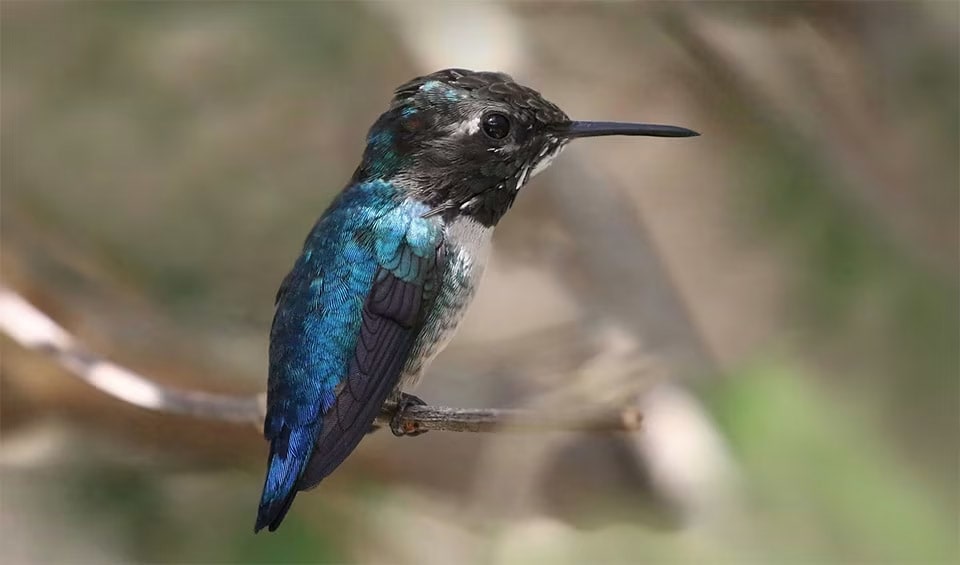The Bee hummingbird holds the title of the world’s smallest bird, a feat that makes it both fascinating and elusive to observe in the wild. Native to Cuba and the Isle of Pines, this diminutive avian marvel is often mistaken for a buzzing honey bee due to its tiny size and rapid movements.
Despite its minuscule stature, the Bee hummingbird possesses remarkable agility and dexterity, capable of hovering effortlessly with its slender, needle-like bill while sipping nectar from delicate flowers. In addition to nectar, these tiny birds supplement their diet with small insects, which they catch with their specialized, brush-tipped tongues during mid-air acrobatics.
One of the most astounding feats of the Bee hummingbird lies in its unparalleled wing speed. With wings that beat at an astonishing rate of up to 80 times per second during normal flight and a staggering 200 flaps per second during courtship displays, these miniature marvels showcase the epitome of avian aerodynamics and agility.
When it comes to nesting, the Bee hummingbird exhibits a masterful blend of ingenuity and stealth to protect its offspring from predators. Constructing a cup-like nest from a combination of dried plant fibers and soft plant wool, the female meticulously camouflage the nest’s exterior with lichens and overhanging branches, rendering it nearly invisible amidst the foliage of its forest habitat.
During the breeding season, females lay a clutch of at least two eggs, which they incubate alone for a period of 21 to 22 days. After hatching, the devoted mother tirelessly tends to her young chicks, feeding them a regurgitated mixture of nectar and small insects until they are capable of fending for themselves.
Distribution
 Bahamas
Bahamas Cuba
CubaAnything we've missed?
Help us improve this page by suggesting edits. Glory never dies!
Suggest an editGet to know me
Terrestrial / Aquatic
Altricial / Precocial
Polygamous / Monogamous
Dimorphic (size) / Monomorphic
Active: Diurnal / Nocturnal
Social behavior: Solitary / Pack / Herd
Diet: Carnivore / Herbivore / Omnivore / Piscivorous / Insectivore
Migratory: Yes / No
Domesticated: Yes / No
Dangerous: Yes / No





